|
|
| Bradly
MacDonald was born a member of the Algonquins of Pikwakanagan
nation of Golden Lake Indian reserve in Ontario,
Canada. This family has included chiefs and
leaders of the Algonquin speaking nations for
many generations. This heritage inspires
Bradly to uphold his family’s creed in every
aspect of his daily life. In 1982, he was asked
by family elders to direct his talents for the
betterment of all peoples. He set out on a
mission that included giving all his possessions
to the people, remaining homeless for five
years, and donating all monies gained from sales
of his art to whomever needed it. Since that
time Dreamwalker has participated as a fine
artist, set designer, storyteller and mentor in
the world community of peoples. |
 |
|
| Cherokee Images Tribal Art
by Ken Masters
"We
spend so much time shouting our opinions at each
other, stressing our importance, that we can no
longer hear those things which don't have to
shout to be important."
-- Ken Masters, 1992, speaking at a
congressional breakfast in Washington DC
|

|
|
| Lee Marmon
is the
blue-eyed Indian, one-quarter Laguna, born and
raised on the pueblo. His grandfather, Ohio-born
Robert Marmon, was the first white governor of
Laguna and among the scouts who tracked Geronimo.
His daughter, author Leslie Marmon Silko, wrote
the acclaimed books Ceremony and Almanac
of the Dead. At
age 69, he's quite accomplished himself, having
been a teacher, a postmaster and a photographer
whose work has appeared in galleries, books and
magazines nationwide. He and his assistant,
Robin Webb, were recently commissioned to
photograph Colorado's Ute Indians. The 16
portraits will be permanently displayed at the
new Denver airport. |
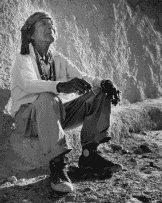 |
|
|
Christine
Nofchissey McHorse draws from cultural and modern influences to produce hand-built
micaceous pottery: utilitarian and collectible bean/cooking pots,
canteens, plates, melon and gourd-shaped pots, corn bottles, wedding
vases, and sculpted, corrugated and story pots with or without etched
design or applied pinon pitch.
Her silverwork includes tufa-cast silver animal pins and belt buckles,
conchos and miniature hand-stamped picture frames. Christine retails her
work and accepts special commissions. |
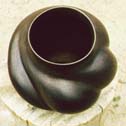
|
|
| Hugh
McKenzie Born
in 1943 in Ontario, Hugh grew up on his father's
trapline. Land, water, animals and bird became
his inspiration in early childhood. Boyhood
friend and artist, Benjamin Chee persuaded Hugh
to accompany him to Ottawa to work as an artist.
He soon perfected a unique stencil sponge style
integrating ancestral and contemporary Ojibway
symbols |
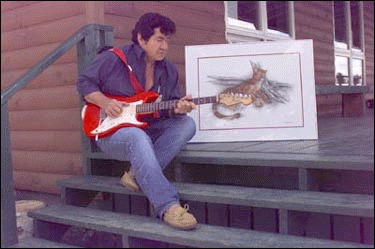 |
|
| Tony
Miron is a member of the Sault Ste. Marie Tribe of Chippewa
Indians in the Upper Peninsula of Michigan, the
Anishinabe Elk Museum of Living Arts, and the
Society for the Preservation of AuSalbe. He
studied at the American Academy of Fine Arts and
McHenry College in Crystal Lake, Illinois. While
attending school, Tony painted the Chicago Black
Hawk logo, roller rinks, office buildings,
murals, and restaurant walls. After attending
classes, Tony moved back to the Sault to study
the traditional teachings. Upon receiving the
traditional teachings, he decided to express and
combine his knowledge of traditional teachings
and culture with his diverse natural talents to
create works in acrylics, oils, crew quill
(feather pen), rapidograph, pastels, charcoal,
and pencil. Being a traditional dancer himself,
he has also become well known for his creations
on traditional dance regalia and has had the
honor of being Head Male Dancer. |
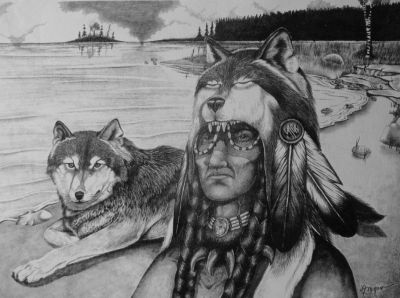
|
|
| James A. Simon
Mishibinijima Born in 1954, Mishibinijima is an Ojibway from the
Wikwemikong Unceded Indian Reserve on Manitoulin
Island, the largest freshwater island in the
world, located in Ontario, Canada. Though given
the name James Alexander Simon by the
missionaries who could not pronounce his native
name, he proudly signs his work Mishibinijima.
The name stands for a very special art form
which still surprises and captivates the art
world. His paintings depict legends passed on by
the Elders over generations, and through these
legends move us right into the rythm of
existence. No artist has ever demonstrated in
such a way the necessary connections which make
for harmony in Nature, that we are all
interconnected, land, plants, animals and human
beings. |

|
|
| Stephen
Mopope was a Kiowa Indian born in 1900, near Ft. Cobb, OK; lived
there; and died 1967 (some sources say 1974). He
studied at the University of Oklahoma Art
School, with Oscar B Jacobson and Edith Mahier.
He was one of the "Five Kiowa
Artists" who attracted international
interest at the Prague Exposition in 1928 for
promoting a "new" kind of art called
Native American. |
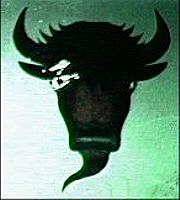 |
|
| Norval
Morrisseau was born in 1932 on Sand Point Ojibwe Reserve, near
Beardmore, Ontario (now Thunder Bay). He was the
founder of the woodland style that is known as
Legend or Medicine painting.
Morrisseau has received the Order of Canada,
1978 and was elected to the Royal Canadian
Academy of Arts. He was the only Canadian
painter asked to exhibit in Paris French
Revolution bicentennial, 1989. |
 |
|
David A.
Montour Sculptor, flute carver, painter and musician…A young man
of numerous talents, this vibrant Native
American began to nurture his creative talents
at a young age, growing up in New Mexico, South
Dakota and Montana. His mother is a member of
the Potawatomi and Ottawa people. His father is
a member of the Mohawk and Cayuga people.
David has let his creative talents rise to the
challenges put forth by the demands of the fine
arts. He is known for combining traditional and
contemporary "feeling" in sculptures
of stone, wood and bronze. David brings out the
natural beauty in each media that few people can
resist. |
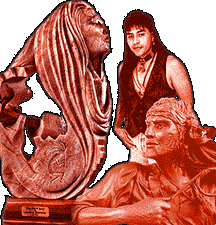 |
|
| Gerald McMaster
was born on the Red Pheasant Reserve near North
Battleford, Saskatchewan. He studied at the
Institute of the American Indian Arts in Santa
Fe, New Mexico, and the Minneapolis College of
Art and Design where he obtained a Bachelor of
Fine Arts in 1977. In his work, the artist
explores history from a First Nations
perspective, often employing a strong sense of
humor as a form of social commentary. In
addition to a successful art career, McMaster
has held the position of Curator of Contemporary
Indian Art at the Canadian Museum of
Civilization, in Ottawa, since 1981. |
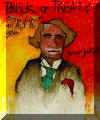 |
|
| Patricia
McAllister
is the featured artist of Cherokee Mountain
Gallery. original oils and watercolors are
showcased. Signed and numbered prints line the
walls.
|
|
|
Rene
Meshake makes videos
that bring his art, stories, songs and Ojibwe language to the
world. The joining of Ojibwe and English sequences complete the
videos as an interpretive narrative. He creates a series of
paintings or drawings with a premise or theme and then videotapes
them to tell a story and sing in Ojibwe. He believes that
language is the carrier of the culture; even one word can tell a
story. As a result, his audiovisual work reflects Ojibwe oral
tradition and heritage. |
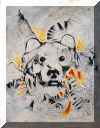 |
|
|
Jackie
McDonald is a enrolled member of the Confederated Salish and Kootenai
Tribe and lives on the Flathead Reservation. She is well known for her
expert beading skills and original designs with an excellent eye for
colors that make every piece a treasure. Custom orders for something that
you don't see here are gladly welcome. Jackie truly enjoys beading and it
is her main income for raising her family. She also participates in the
local Tribal programs in teaching the younger generations how to bead,
make their dance costumes, and be proud of their heritage. |
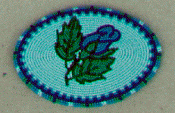 |
|
|

